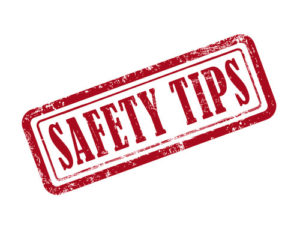While the winter season brings plenty of holidays, parties, and get togethers with family and friends, it also means shorter days, less sunshine, and colder temperatures. While we can keep our houses warm and toasty all winter long thanks to fireplaces, furnaces, and more, there is an increased risk of house fire when heating your home.
Christmas trees, overloading outlets, not cleaning dryer vents, or failing to replace air filters can all lead to accidental house fires during the winter. The following tips can help you prevent and avoid safety issues related to heating around your home this winter.
Safety Tips to Avoid House Fires
– Clean the dryer vents. The same lint that appears in your dryer’s lint trap can build up in the dryer’s vents. Over time, this can constrict air flow in the vents, affecting dryer performance and increasing the risk of dryer fire. Because lint is so flammable, overheated air from a dryer trying to compensate for blocked vents can cause an accidental fire. Dryer vents should be cleaned every few years or any time dry times or dryer performance begins to be affected.
– Have the chimney swept. Fall and winter are the most common seasons for fireplace use – and the most common seasons for chimney fires. Ensure your fireplace is ready to use in cold weather by having the chimney swept. Annual chimney sweepings remove soot, ash, and debris from the fireplace, as well as a flammable byproduct of combustion known as creosote. When allowed to build up over time in the flue, creosote can be ignited by a stray spark or ember and cause a chimney fire.
– Avoid overloading outlets. Of the approximately 5,300 annual electrical home fires, around 2,000 occur during the holiday season. With holiday decorations to plug in plus lamps, electronics, chargers, fans, and more, it can be easy to accidentally overload an outlet. Avoid overloading outlets by researching the circuits in your home; avoid running too many things on a single circuit by using extension cords, power strips, or additional plugs sparingly.
– Use space heaters with caution. Space heaters are a helpful way to quickly heat a room or provide additional warmth on particularly cold days. These heating appliances should be used with caution, however; make sure to research the specifics of your make and model to understand how to safely use it. As a general rule, electric space heaters are safer than their fuel burning counterparts. Before buying, look for space heaters with additional safety features such as tip over switch or touch sensors. If using a fuel burning space heater, try to crack a window in the room to prevent low oxygen levels and to help vent any byproducts of combustion.
– Check smoke detectors. Accidental house fires can happen year round. Make sure smoke detectors and carbon monoxide detectors are working properly by testing and changing the batteries every six months; a good rule of thumb is to test your smoke detectors at the same time you change your air filters. Smoke and carbon monoxide detectors should also be replaced every 7-10 years to ensure they are up to date with the latest safety standards and technology.
Preventative maintenance, common sense, and a few easy to follow steps can help keep you and your family safe around heating appliances this winter. For more information on fire prevention tips or to schedule a chimney sweeping or dryer vent cleaning appointment, contact Jack Pixley Sweeps today!
